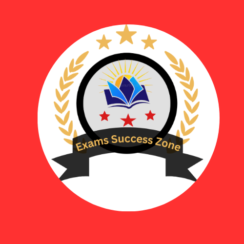How to Prepare RRB ALP Exam
Preparing for the RRB ALP exam requires a strategic approach and consistent effort. Here are some effective tips and strategies to help you succeed:
-
Time Management:- Effective time management is crucial for covering the extensive syllabus. Create a study schedule that allocates specific time slots for each subject. Prioritize topics based on their weightage and your strengths and weaknesses. Stick to your schedule and ensure you balance time between learning new concepts and revising old ones.
- Understand the Syllabus and Exam Pattern:- Familiarize yourself with the entire syllabus and the exam pattern. Knowing the structure of the exam will help you plan your preparation more effectively. Focus on high-scoring sections first and ensure you have a solid grasp of the basics in all subjects.
-
Practice Mock Tests:- Regularly practicing with mock tests is essential for improving your speed and accuracy. Mock tests simulate the actual exam environment, helping you manage time under pressure. Analyze your performance in these tests to identify areas where you need improvement.
-
Focus on Weak Areas:- Identify your weak areas and devote extra time to them. Whether it’s a particular subject or type of question, practice until you gain confidence. Don’t ignore your strong areas either—regular revision is key.
-
Stay Updated with Current Affairs:– For the General Awareness section, keep yourself updated with the latest current affairs, related to science and technology ,sports , national and international news . Reading newspapers, magazines, and online resources regularly can help.
RRB ALP preparation best strategy & study plan
Understand the Exam Pattern and Syllabus
- Exam Pattern: Familiarize yourself with the stages of the exam, including the Computer-Based Tests (CBT), which are divided into multiple sections. Knowing the number of questions, marking scheme, and time allotted for each section will help you strategize your approach.
- Syllabus: Go through the detailed syllabus for each section—Mathematics, General Intelligence and Reasoning, General Science, and General Awareness. Make a list of all the topics and subtopics to cover.
Focus on Concepts Clarity
- Understand Basics: Focus on building a strong foundation in each subject. Ensure you understand the basic concepts before moving on to advanced topics. This is especially important for subjects like Mathematics and Technical Knowledge.
- Practice Problem-Solving: Regularly solve problems to apply the concepts you’ve learned. This will help reinforce your understanding and improve your problem-solving speed.
Create the best Plan
- Daily Study Schedule: Allocate specific time slots for each subject based on your strengths and weaknesses. Prioritize high-scoring and frequently asked topics. Include time for revision and mock tests in your daily routine.
- Weekly Targets: Set realistic weekly targets to cover a certain portion of the syllabus. At the end of each week, review your progress and adjust your plan if needed.
Regular Practice with Mock Tests and its analysis
- Simulate Exam Conditions: Take full-length mock tests under timed conditions to simulate the actual exam environment. This will help you build speed and accuracy.
- Analyze Performance: After each mock test, analyze your performance. Identify your weak areas and focus on improving them. Review the mistakes you made and learn the correct approach to solve similar problems.
Regularly Revision
Revise Regularly: Make revision a part of your daily routine. Revising previously covered topics will help retain information and improve your recall during the exam.


